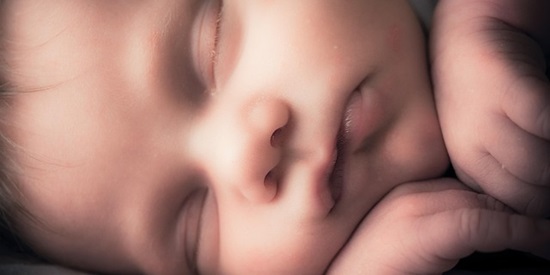Research finds link between gene activity in babies noses and wheezing illnesses
Media release
New findings from the Barwon Infant Study show the pattern of gene activity in baby's noses is strongly linked to their risk of subsequent wheezing illnesses.
The research published in the Journal of Allergy and Clinical Immunology provides key insights into why some babies are at increased risk of respiratory illnesses long before clinical symptoms appear.
Lead author Dr Poshmaal Dhar, postdoctoral researcher in Deakin University's School of Medicine said the findings highlight the importance of early-life development of the respiratory tract's immune system and epithelium, or lining.
'Things that interfere with normal development might increase the risk of recurrent wheezing illnesses,' said Dr Dhar said.
For the study, the team collected swabs from the noses of healthy babies at one month of age.
They then compared the gene activity, or 'expression', among babies with and without subsequent recurrent wheezing illness.
They found a wheeze-associated gene expression pattern consistent with increased immune cell activity, altered mitochondrial function, and reduced epithelial barrier and cilia function and assembly.
Professor Peter Vuillermin, from Deakin's School of Medicine and Clinical Director of Research at Barwon Health said recurrent wheezing illnesses are among the most common reasons that babies are admitted to hospitals in Australia and predict asthma in later life.
'Understanding differences in the respiratory tract lining among babies at increased risk of wheezing is an important step toward primary prevention,' Professor Vuillermin said.
'Identifying the causes of these differences will help us design new preventions and treatments,' Professor Vuillermin said.
'The data and biological samples assembled in the Barwon Infant Study provide us with a unique opportunity to understand the pathways that lead to the gene expression pattern described in this study,' Dr Dhar said.
The Barwon Infant Study is one of the world's most successful birth cohort studies, partnering Deakin University with Barwon Health and Murdoch Children's Research Institute. It began in 2010 with the recruitment of 1,074 mothers and their babies, following them for more than a decade.

